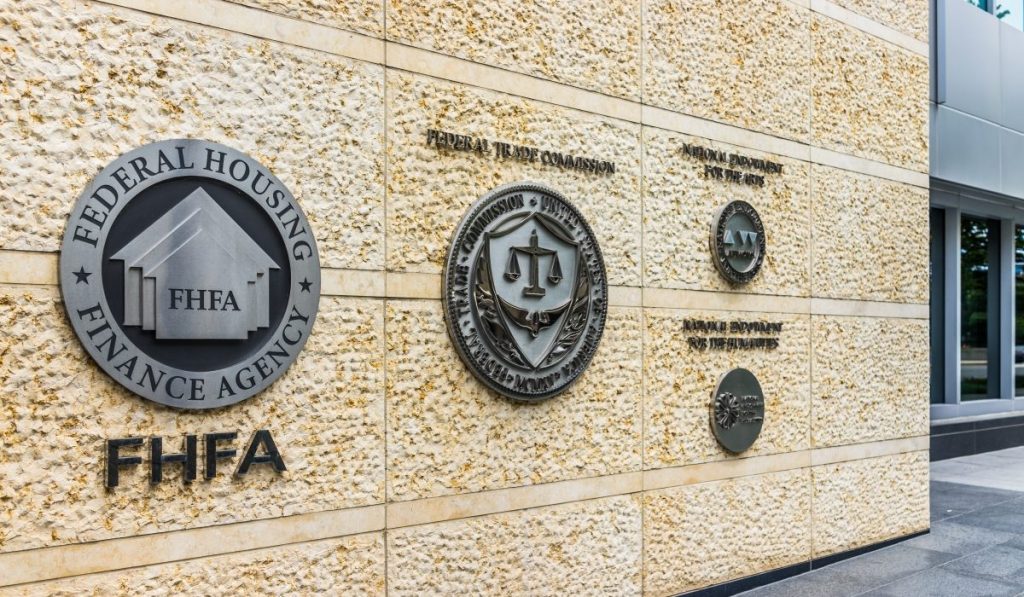The National Association of Realtors and other industry trade groups are calling for the reform of the government-sponsored enterprises. They also want to see a change in the leadership structure at their regulator, the Federal Housing Finance Agency.
At a webinar hosted by NAR, panelists spoke about the next potential steps for removing Fannie Mae and Freddie Mac from conservatorship.
The discussion came after the biggest trade groups in housing –including the Mortgage Bankers Association, the American Bankers Association, the National Association of Home Builders and NAR – in December sent a letter to U.S. Department of the Treasury Secretary Steven Mnuchin regarding the fate of the GSEs.
In the letter, the groups expressed concern about significant market disruptions that could occur if the GSEs were to be released from conservatorship before building significantly more capital. They also cautioned that key reforms to ensure that the GSEs operate with appropriate controls to support the market have not yet been implemented.
Alongside Mnuchin’s statement that he would not support a swift end to the conservatorship, some wondered if it was the final nail in the coffin for any hope of moving the GSEs out of conservatorship.
How the mortgage industry is working together to make housing more affordable
The issue of housing affordability has no one solution, but with collaboration across the entire housing industry, together we can create more opportunity for more people to achieve sustainable, long-term homeownership.
Presented by: Fannie Mae
But in its panel, NAR expressed an alternative: a change in leadership for the FHFA, currently helmed by Mark Calabria.
“We argue that the FHFA should be migrated, rather than a director removable with cause, to a panel – a bipartisan panel of experts industry experts that would be reviewed and passed by the Senate,” said Ken Fears, NAR senior policy representative for banks, lending and housing finance. “We think there needs to be, at the at the top, a level of insulation.”
Fears suggested such a leadership panel be modeled after another entity that is insulated from the political changes from one administration to the next: the Federal Reserve.
“[The Federal Reserve] has done an amazing job of insulating from the political process,” he said. “We could we would migrate not just to from a bipartisan kind of panel, but a non-partisan kind of panel and develop that same kind of esprit de corps.”
Currently, the FHFA director is removeable by the president only for cause, but many think that is about to change. Last year, the Consumer Financial Protection Bureau’s leadership structure, which held was similar to the FHFA’s single-director firable only for cause, was ruled unconstitutional. The FHFA now has a similar lawsuit pending in court.
In the FHFA case, a federal appeals court ruled the single-director structure is unconstitutional because there is not a proper check and balance on the director’s power. The solution the court came up with is to allow the sitting U.S. president to remove the director for any reason, rather than having to show cause.
What’s more, back in 2019, the FHFA revealed it will no longer defend its own structure, calling itself unconstitutional.
And new directors mean new goals, new directions a new focus for the GSEs, which have bled senior talent in the waning months of the Trump administration.
“We’ve already seen that if a director has a particular perspective, the FHFA can steer the GSEs in a particular direction to the detriment of either future investors or the charter goals and the charter mission,” Fears said. “On that front, we see that there is inherently political risk in the current structure. And likewise, they aren’t very politically insulated from Congress at this time.”
One panelist pointed out that there are currently checks in place on the director, and that there could soon be more depending on how the FHFA’s case plays out in court.
“Treasury is going to be a party at the table – and an essential one – because of its backstop,” because of the role it plays, said Mike Calhoun, president of Center for Responsible Lending. “It’s the guarantee, the government backstop that makes this market liquid and gives the GSEs such an advantage over others private securitizers. And so, that’s not a complete diversification of authority but a very substantial one. You would not have just an independent director who is free to do whatever they want.”
He added: “And also, most observers think the independent director will soon be subject to removal at the pleasure of the president, which would be an additional check on a rogue regulator failing to enforce the model.”
Other panelists were more direct in their view, saying one of the most important factors for moving forward with GSE reform is simply removing FHFA Director Mark Calabria.
“I think they need to put in a new head of the FHFA who knows the business, and can therefore move with dispatch and expertise to do selective undoing of things that Director Calabria has done, which I think have been…out of the mainstream,” said Donald Layton, Enterprise Community Partners board member and former CEO of Freddie Mac. “The capital plan needs to be completely revised, for example.”
On the webinar, panelists argued for removing the GSEs from conservatorship and placing them into a market utility model.
“In our view, the GSEs as a market utility really provides a concrete way to move forward that is prudent, politically doable and really supports the mission of the enterprises and the affordable housing objectives that we think are really important,” Layton said.
Calhoun agreed, saying that this year proved the need to make the mortgage giants public utilities.
“The GSEs have provided incredible support during this COVID crisis which is reinforced while we need them as public utilities,” he said.






